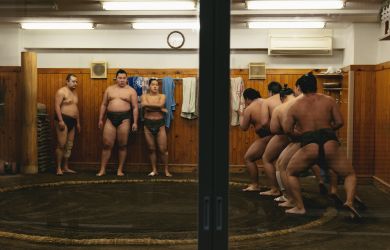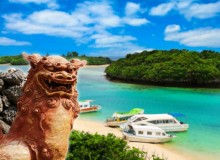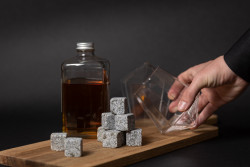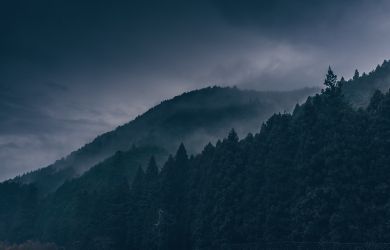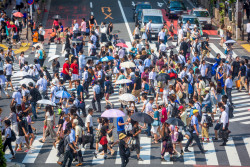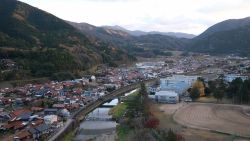
Originally published on metropolis.co.jp on September 2010
A digital world
- Computer hackers accessed the databases of eight online Japanese supermarkets and made off with the personal information of thousands of customers.
- Google Maps celebrated its fifth anniversary by unveiling a new satellite positioning technology in Tokyo that is said to improve the accuracy of the service.
- Don’t look down. The new 41.5-meter high Amarube Bridge in Hyogo Prefecture has opened for use, replacing a 98-year-old span that was known as Japan’s largest iron trestle bridge.
- It was reported that local Muslims are dismayed by the lack of graveyard space in Japan, as Islamic principles state they must be buried without cremation.
Appreciating the classics
- A Miyagi man in his 20s attacked a Tokyo riot officer with a samurai sword near the prime minister’s office before being corralled by other officers.
- Japan’s largest giant salamander, thought to be over 100 years old, died at the hot spring resort of Yubara, officials in Okayama said.
- A rare color woodblock print of a female ghost by Kuniyoshi Utagawa, missing since before World War II, was discovered to be in the possession of a researcher in Tokyo.
- Scientists working with an expert in tree-ring dating believe a Zen Buddhist hall in Nara may be the world’s oldest wooden structure still in use.
- A geological map said to be one of the oldest of its kind in Japan and believed to have been used by poet and author Kenji Miyazawa was discovered at Iwate University Library.
- Japanese officials say misplaced centenarians on-the-go won’t affect the nation’s life expectancy figures.
The sporting news
- Popular curler and sometime model Mari Motohashi left Team Aomori, which represented Japan at the Vancouver Olympics, to form her own team in Hokkaido.
- Drop down and give me 20! Waseda Jitsugyo second-year student Konsu Yasuda turned heads at the National High School Baseball Tournament last month by performing a series of push-ups in the on-deck circle prior to each of his at-bats, earning him the moniker “The Push-up Prince.”
- Uji-Yamada High School and Kyoto Gakuen Senior High School, the alma maters of two pitchers killed in World War II, played a memorial game against each other in commemoration of the pair.
- Baseball fans looking for a bargain can flock to Sapporo, where the Hokkaido Nippon Ham Fighters announced they’ll discount tickets by half price for one hour after each home run hit by slugger Sho Nakata. Fans must visit the ticket booth and utter the phrase “It’s Sho Time” when making their purchase.
Life of a star
- Candy maker UHA Mikakuto launched a series of commercials featuring the top 21 members of girl group AKB48, as chosen by the public, in the hope of boosting sales of its Puccho line of sweets. There was no mention of the band’s 27 less-popular members, who apparently have no selling power.
- Too much of a good thing caused the closing of Rokurinsha, a popular ramen shop near Osaki station, after neighbors complained about customers lining up for hours, blocking traffic and smoking on the street.
- A health ministry working group has revised its regulations so children under 18 will be given priority for heart transplants from brain-dead donors also under 18.
- Fans of McDonald’s can breathe a bit easier as the restaurant chain announced plans to do away with smoking areas in its Japanese locations.
- The Ministry of Internal Affairs and Communications has warned US forces in Japan that unauthorized radio waves emitted from foreign-made baby monitors are disrupting transmissions of nearby taxi and trucking companies.
Alternative energy
- A subsidiary of Kyushu Electric Company announced plans to start a power generation business in southern India using, among other things, chicken manure.
- A tourism association in Yamagata Prefecture opted against the allure of manure and announced plans to use discarded cherry seeds as a power source to create “healing pillows,” which can be used for warming or cooling.
- A group of Tohoku University and Tohoku Electric Power company scientists have discovered a new use for seaweed after figuring out how to generate bioethanol from plants in that family.
- Counting sheep just isn’t getting it done anymore, apparently: a health ministry survey found the daily dosage of prescription sleeping pills has risen 30 percent during the past four years.
It’s a jungle out there

Illustration by Eparama Tuibenau
- The cows are running dry in Aichi, where experts say heat stroke and other ailments caused by high temperatures are having an adverse effect on milk production.
- A 2-year-old chimpanzee raised by humans since birth was successfully introduced into a troop at Tama Zoo.
- A more rebellious primate wasn’t as willing to give up the trappings of human life, however. Police and an Ueno Zoo worker had to use a tranquilizer gun to capture a wild monkey at a storehouse in a residential area of Taito-ku.
- Ninety-seven people aged 60 or older were charged with capturing wild birds illegally from January through June, according to the Metropolitan Police Department.
Compiled from reports by Bloomberg, BBC, Japan Today, The Japan Times, International Herald Tribune/The Asahi Shimbun, The Mainichi Daily News, The Tokyo Reporter, The Daily Yomiuri, AP and Kyodo

